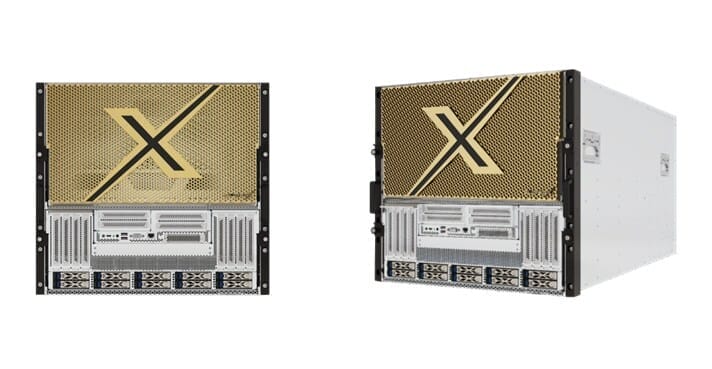Introduction:
In the world of finance, cryptocurrencies and blockchain technology have emerged as transformative forces, revolutionizing the way we conduct transactions, store value, and engage in online trading. As a beginner looking to explore the exciting realm of crypto and blockchain trading, it is essential to understand the fundamentals and equip oneself with the necessary knowledge. This beginner’s handbook aims to provide a comprehensive overview of crypto and blockchain trading essentials, offering valuable insights and guidance along the way.
Getting Started with Crypto Trading:
For those embarking on their crypto trading journey, an online trading platform like trader-ai.io can serve as an excellent starting point. It provides a user-friendly interface and a range of tools to facilitate smooth and efficient trading experiences. By utilizing this platform, beginners can gain access to a wide selection of cryptocurrencies and capitalize on market opportunities.
Understanding Crypto and Blockchain:
At the heart of the crypto and blockchain revolution lies a decentralized digital ledger called the blockchain. It is through this technology that cryptocurrencies like Bitcoin, Ethereum, and many others operate. Blockchain ensures transparency, security, and immutability, making it an ideal platform for conducting financial transactions and maintaining records.
Understanding Cryptocurrencies:
Before delving into the world of trading, it is crucial to grasp the basics of cryptocurrencies. Each cryptocurrency operates on a specific blockchain network and possesses unique characteristics. Bitcoin, for instance, is the first and most well-known cryptocurrency, often considered a store of value akin to digital gold. Ethereum, on the other hand, facilitates smart contracts and decentralized applications (DApps) within its blockchain ecosystem.
Wallets: Securely Storing Cryptocurrencies:
When engaging in crypto trading, it is imperative to have a secure wallet to store and manage your digital assets. Wallets come in various forms, including hardware, software, and online wallets. Hardware wallets, such as Ledger and Trezor, offer enhanced security by keeping private keys offline. Software wallets, like Exodus and MyEtherWallet, are installed on computers or smartphones. Online wallets, such as MetaMask, offer convenience but require careful consideration of security measures.
Analyzing Market Trends:
Successful trading in the crypto space requires a comprehensive understanding of market trends and the ability to make informed decisions. Technical analysis involves studying price charts, indicators, and patterns to identify potential entry and exit points. Fundamental analysis, on the other hand, focuses on evaluating the intrinsic value of cryptocurrencies by examining factors such as technology, team, adoption, and market demand.
Risk Management Strategies:
Like any form of trading, crypto trading involves risks. It is essential for beginners to implement risk management strategies to protect their investments. One such strategy is portfolio diversification, which involves spreading investments across multiple cryptocurrencies to reduce exposure to any single asset. Setting stop-loss orders and regularly monitoring the market can also help minimize potential losses.
The Role of Regulation:
As the crypto industry continues to gain traction, regulatory frameworks are evolving to ensure investor protection and market stability. It is crucial for beginners to stay updated on the regulatory landscape of their respective jurisdictions. Compliance with Know Your Customer (KYC) and Anti-Money Laundering (AML) regulations is often mandatory on reputable trading platforms, promoting a safer trading environment.
Staying Informed: Learning Resources and Communities:
To thrive in the dynamic world of crypto and blockchain trading, continuous learning is vital. Numerous online resources, such as educational websites, forums, and social media communities, offer valuable insights, analysis, and discussions. Engaging with like-minded individuals, joining relevant online communities, and attending conferences or webinars can help beginners expand their knowledge and stay updated on the latest trends.
Remember, as with any form of investment, it is important to exercise caution and conduct thorough research before making trading decisions. as an online trading platform, provides the tools and resources necessary to get started on your crypto journey. However, it is always advisable to seek professional advice and make informed decisions based on your risk appetite and financial goals.
Conclusion:
Embarking on the journey of crypto and blockchain trading can be an exciting and potentially profitable endeavor. By understanding the fundamentals of cryptocurrencies and blockchain technology, choosing a reliable trading platform and adopting essential trading strategies, beginners can navigate the crypto market with confidence. It is crucial to keep learning, staying informed about market trends, and adapting to regulatory changes to ensure a successful and secure trading experience. With diligence and a thirst for knowledge, beginners can unlock the vast potential of crypto and blockchain trading, opening doors to new financial opportunities in the digital era.

















